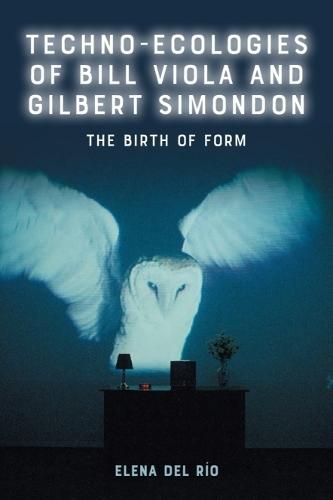Overview
Both Viola and Simondon prioritise a techno-aesthetic experience that reveals a consistent pattern of interdependence between form and matter, nature and culture, human and nonhuman. Inspired by Simondon's ideas on individuation as process, and by other major figures of process philosophy such as Raymond Ruyer, Deleuze and Guattari, and Brian Massumi, Elena del Ro delves deep into Viola's art and finds a politics of nature that is also a politics of the affects. In taking full account of the interrelation between collective affects and living milieus, this politics exceeds the still anthropocentric project of a politics reductively focused on environmental degradation. The book works with a broad concept of ecology that encompasses a nature-culture continuum - from Simondon's associated milieu to Guattari's tripartite ecological praxis, from Deleuze and Guattari's existential territories to Massumi's affective events. Attending to this nature-culture continuum and activating our collective energies are prime strategies in tackling the overwhelming psycho-social and environmental crises we face.
Full Product Details
Author: Elena del Río (Associate Professor of Film Studies, University of Alberta, Canada)
Publisher: Edinburgh University Press
Imprint: Edinburgh University Press
ISBN: 9781399554770
ISBN 10: 1399554778
Pages: 280
Publication Date: 30 November 2025
Audience:
College/higher education
,
Postgraduate, Research & Scholarly
Format: Hardback
Publisher's Status: Forthcoming
Availability: Not yet available

This item is yet to be released. You can pre-order this item and we will dispatch it to you upon its release.
Reviews
Reading Viola and Simondon together, del Río formulates two bold and marvelous propositions: video (and by extension, cinema) belongs to nature, and the camera is a philosophical system. Her book lives up to the challenge of these propositions, offering luminous readings of Viola video works while upending received understandings of nature and culture, technology and biology. -- Thomas Lamarre, The University of Chicago Bill Viola’s video works give a sense of being in the presence of an ever-expanding infinite—as in his works where imperceptibly slow movement, rather than grasping the visible world, renders the field of vision even more infinite. While Viola’s great body of work is often interpreted as religious or mystical, Elena del Rio argues convincingly that the infinite presence palpable in his work is an infinity immanent to this world: an ever-changing individuation in rhythm with the humans, machines, and other entities that compose it. -- Laura U. Marks, Simon Fraser University
Author Information
Elena del Río is Professor Emerita of Film Studies at the University of Alberta, Canada. Her essays on the intersections between cinema and philosophies of the body in the areas of technology, performance, and affect have been featured in journals such as Alphaville, Angelaki, Camera Obscura, Canadian Journal of Film Studies, Deleuze Studies, Discourse, Film-Philosophy, Image and Narrative, Necsus, The New Review of Film and Television Studies, Quarterly Review of Film and Video, Science Fiction Studies, Studies in French Cinema, and SubStance. She has also contributed to numerous edited volumes on the films of Atom Egoyan, Michael Haneke, and Rainer Fassbinder, and on topics such as Asian exploitation film, cinema and cruelty, the philosophy of film and new media, film noir, film phenomenologies, and Deleuze and cinema. She is the author of The Grace of Destruction: A Vital Ethology of Extreme Cinemas (Bloomsbury, 2016) and Deleuze and the Cinemas of Performance: Powers of Affection (Edinburgh University Press, 2008).



